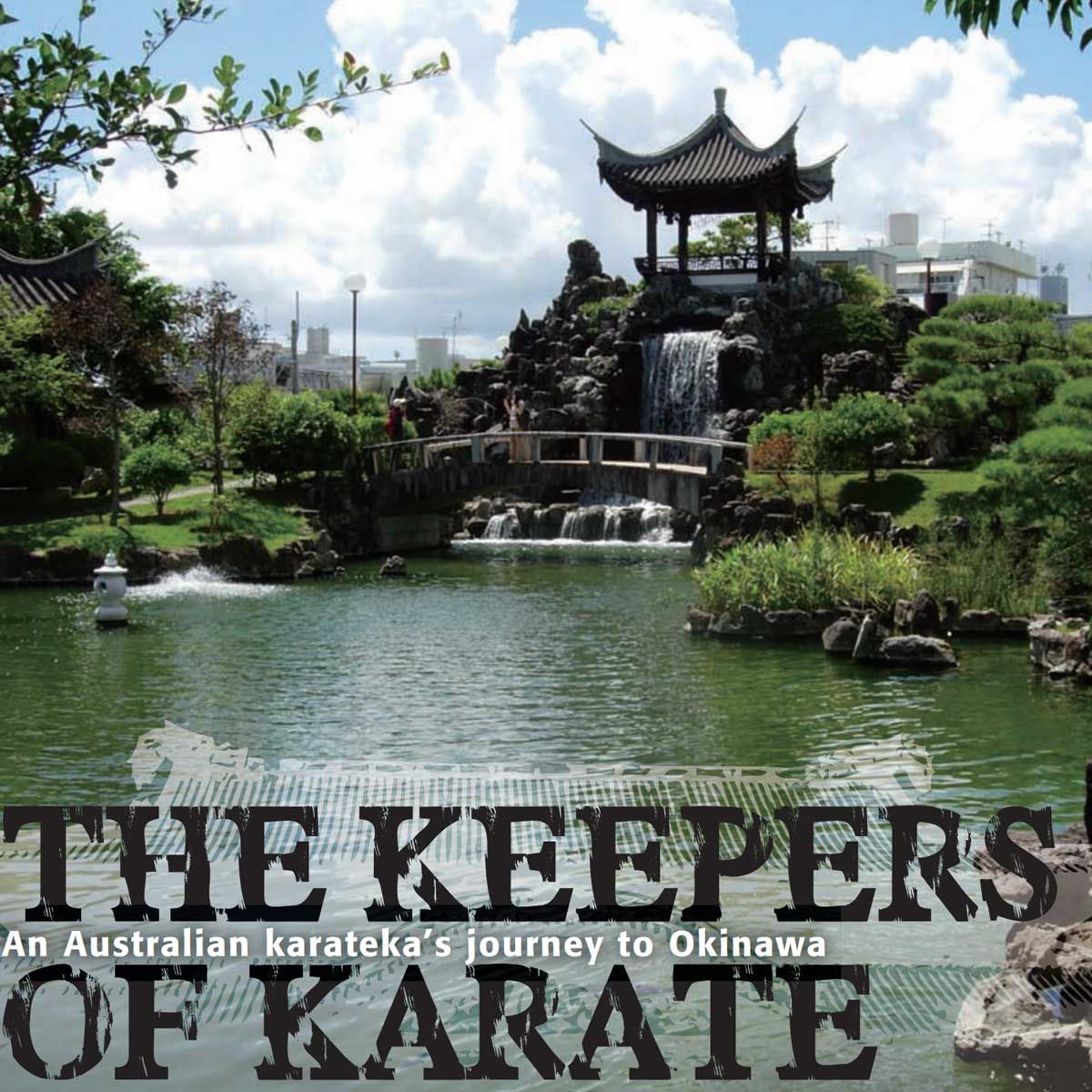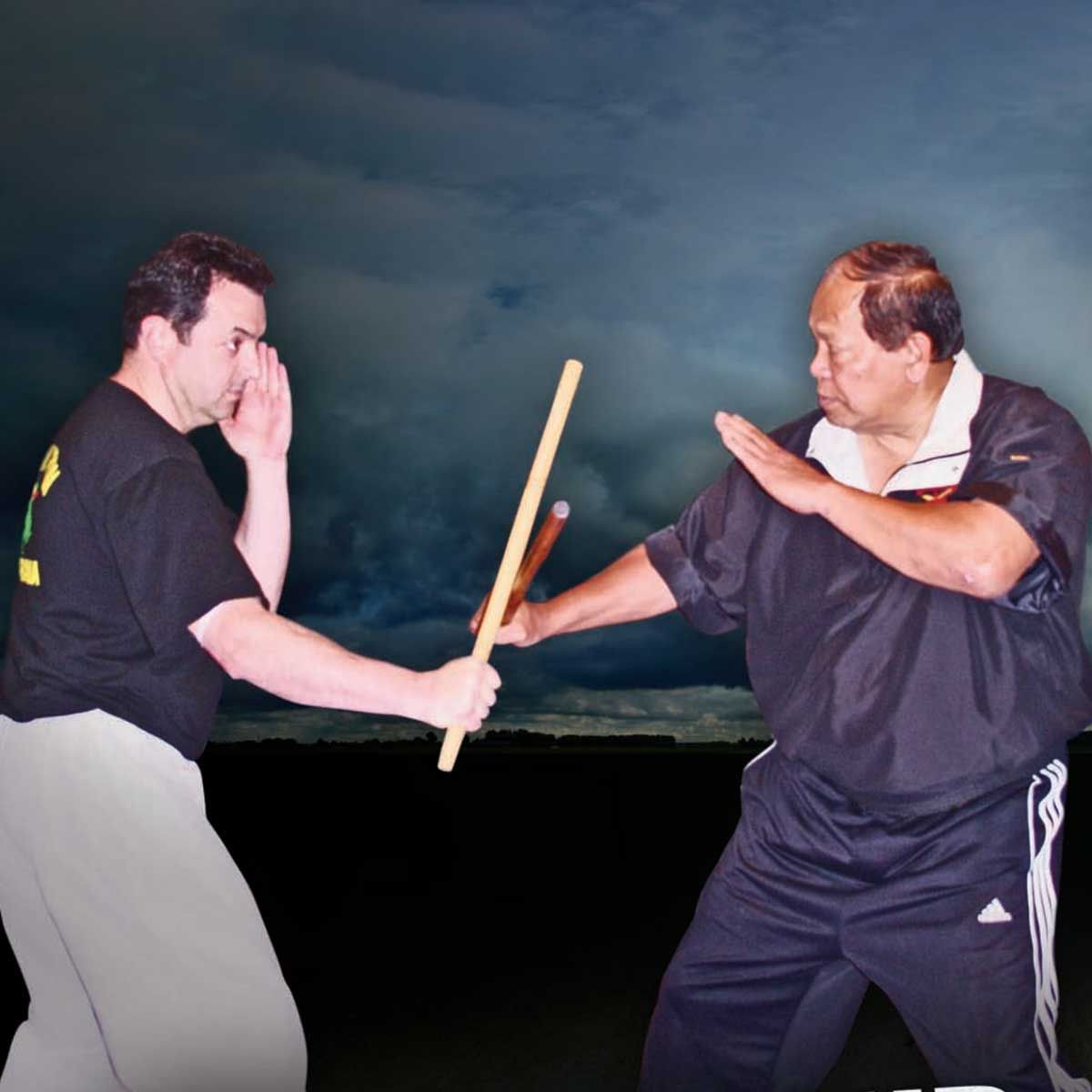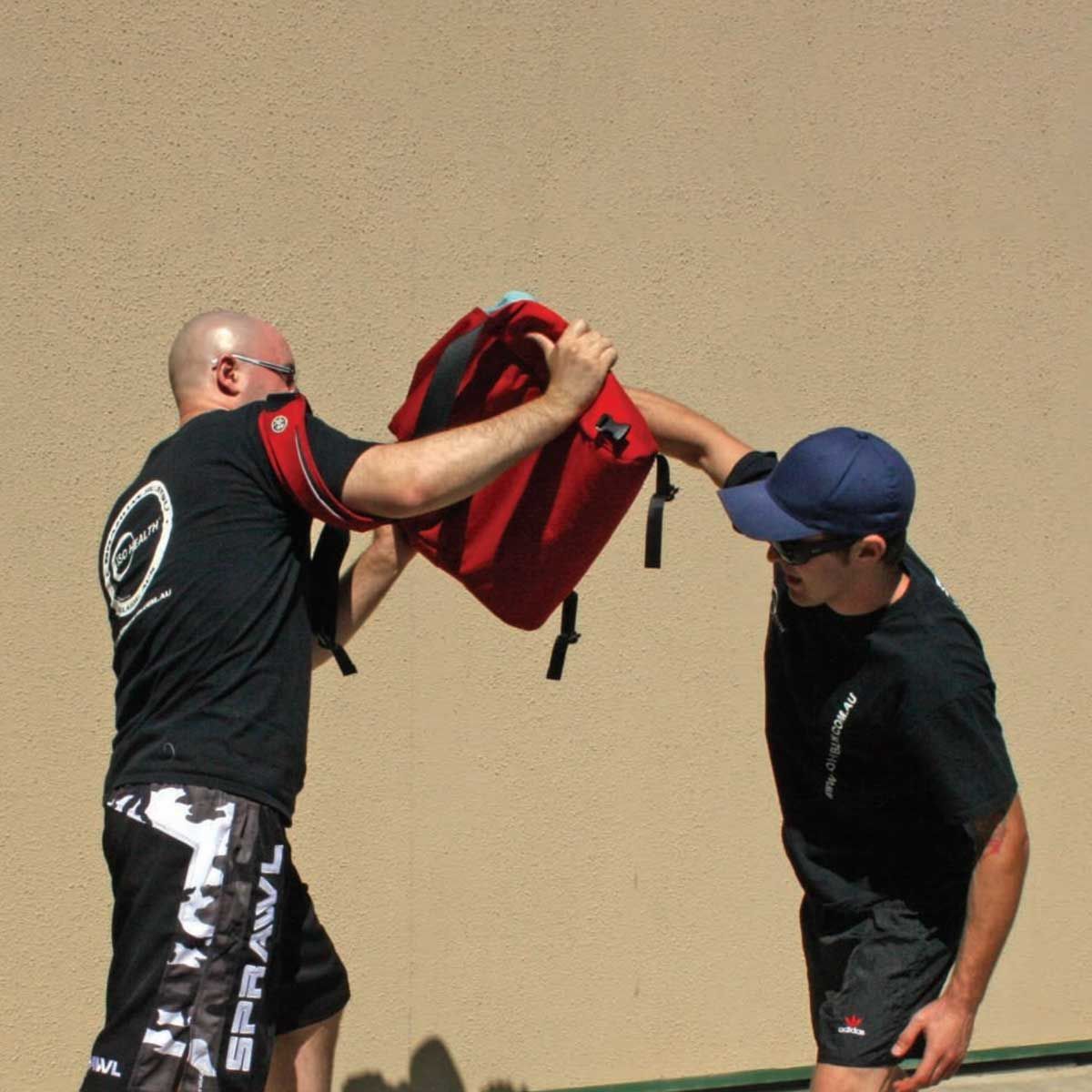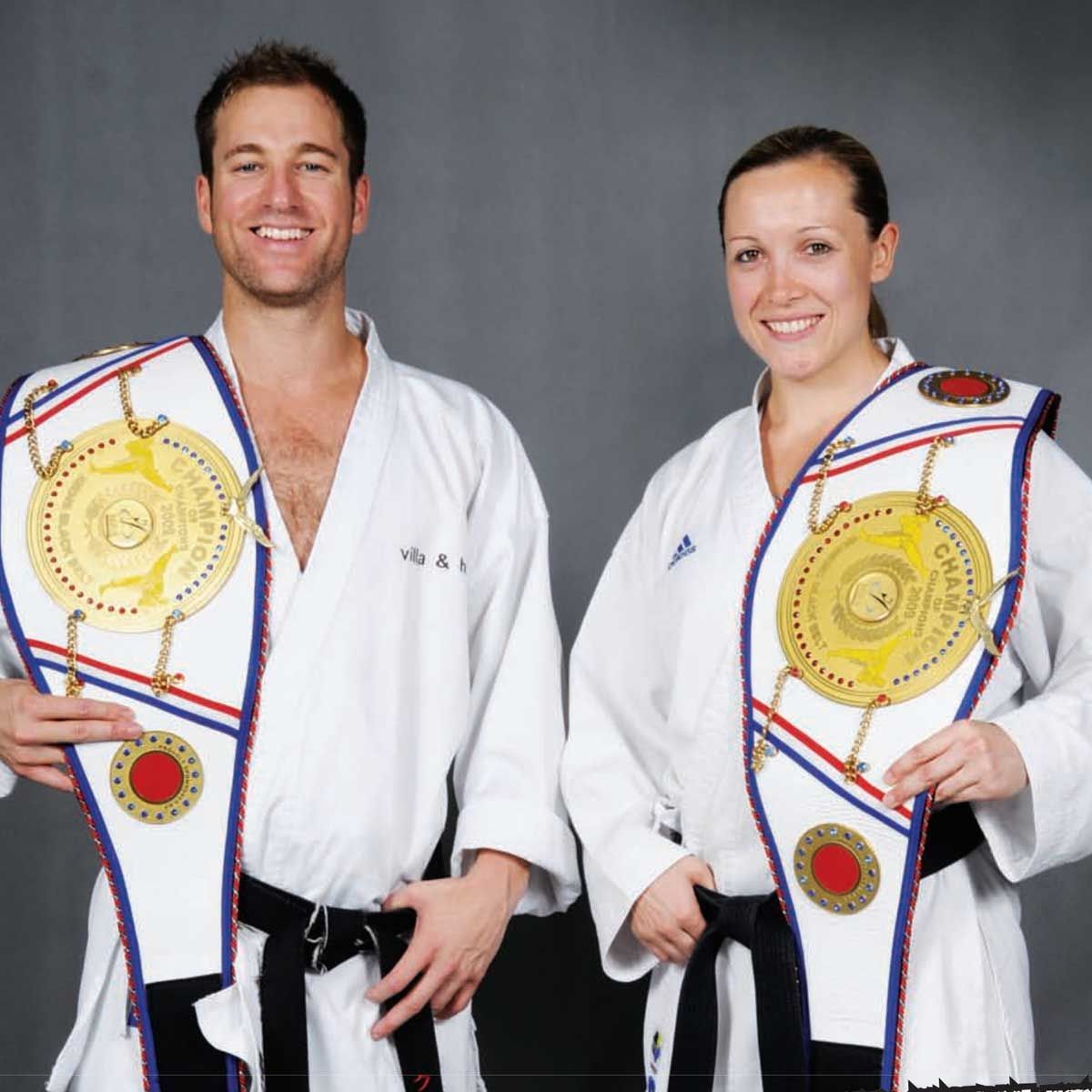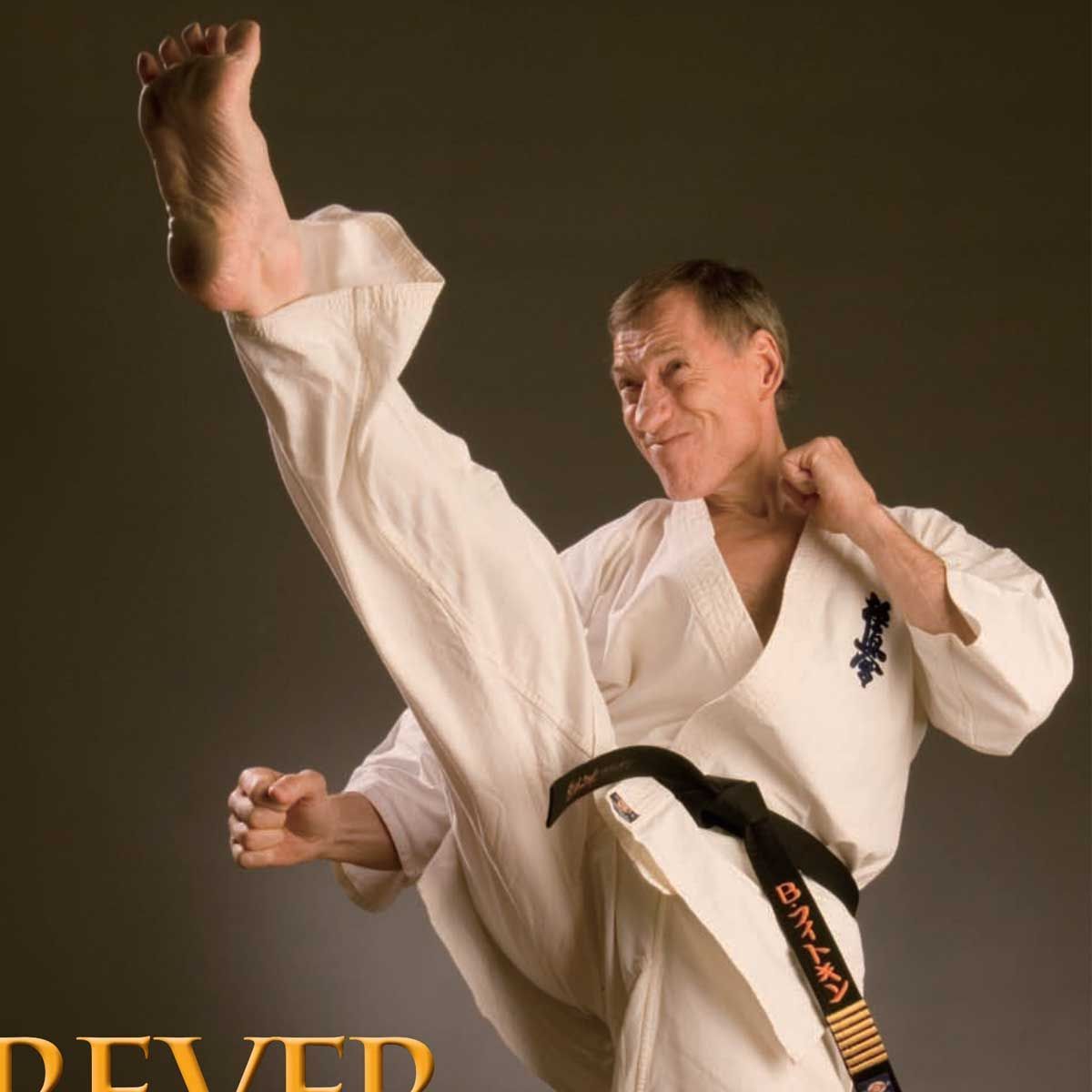REAL FIGHT SCIENCE - Hock Hochheim
Founder of the Scientific Fighting Congress, ‘Hock’ Hochheim is a commendated 23-year veteran of military and police service with Black-belts in Filipino, Japanese and American martial arts. Long sought-after as a seminar presenter, his mission is to teach modern hand, stick, knife and gun combat by bridging the gap between the military, the police, the martial artist and the aware citizen.
While in Australia to conduct workshops recently, Hochheim did an exclusive interview for Blitz with his Australian representative, Paul Johnstone of Brisbane’s Street-Edge Defensive Tactics.
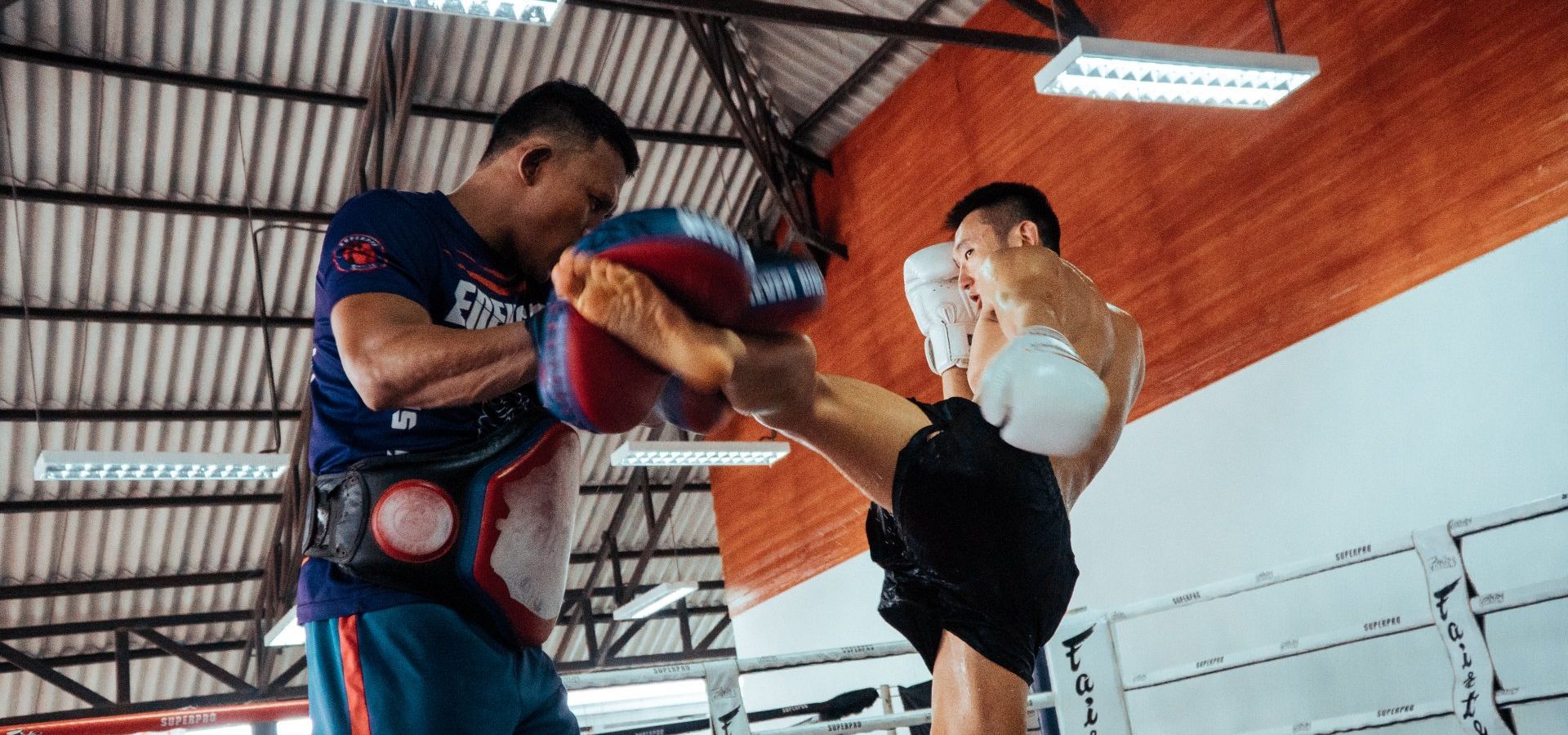
Hock, what originally influenced your decision to learn unarmed combat?
I have always had an obsessive interest in tactics — hand, stick, knife, gun tactics — which of course means fighting with each against each in a mixed-weapon matrix. The unarmed combat is part of that bigger picture.
How long have you been in the martial arts and what styles and systems have you previously trained in?
Very soon it will be 40 years. [‘ve done] police courses, military courses, karate, jujitsu, aiki-jitsu, Kajubenbo and various Filipino martial arts.
You have served in both the military and police. Can you tell me a bit about your background and experiences in both roles and how it has influenced your skills and knowledge as an instructor?
I first started out in Parker Kenpo but went into the Army where I was a military police patrolman and then an investigator; next as a Texas patrolman and detective. This was the instruction that was the most important framework for me. These academies and courses try to answer the problem: ‘This is how they are going to kill you’. These courses did not always get their advice right, but it set the stage for my general discontent for many martial arts to follow. But what else was there to do? I studied many things and picked up a few Blackbelts as I looked for that ‘next, best thing’. Meanwhile, I was always looking for that direct intensity and instead was distracted by system dogma and ‘grandmaster worship’. Okay for some; just not for me. Eventually, I started my own study group to stay on this target.
When did you officially commence the Scientific Fighting Congress?
I have been teaching subjects since about 1991. I picked the SFC name in 1996. I retired from police work in 1997 so I could fi nally concentrate on the subjects full time.
Why did you decide to call it the Scientific Fighting Congress?
I choose the word ‘Congress’ because I liked the idea of various, differing groups and people banding together. On any given weekend, I can be found teaching in a karate school, a Muay Thai school, a Krav Maga school, a community centre, a military base or academy — a congress. And I prefer a scientific approach to the psychology and performance of fighting training. The SFC mission is to bridge the gap between the police, the military, the martial artist and the aware citizenry. Each group knows things about fi ghting that the others don’t.
In what countries do you currently have instructors and where there is a prominent influence of the SFC?
We have hundreds of basic, advanced and expert instructors in about 10 countries, all active as I have seen them in training sessions in the last year and a half. Right now, I’d say most are located in the USA, UK and Europe. They are listed on my web page at www.HocksCQC.com
What individuals have had the most influence on you as a martial artist?
I would have to say that in general my police and military instructors have had the most consistent infl uence on me, because of the evaluation fi lter they instilled in me. You know, I am not so sure I am a martial artist by true defi nition, or an artist in anything for that matter. I am just a guy who collects tricks to fi ght criminals and soldiers.
It is well recorded that you have conducted specialised training for police and military units throughout the world. Which units/agencies have you conducted training for?
I have been a paid consultant for the four main branches of the US military: Army, Navy, Air Force and Marines, working with the Marines mostly. I have taught at many police academies through the world, like in England and Germany and as far away as the one main academy in South Africa. How many offi cers and agencies? Most offi cers, as with soldiers, attend my group seminars and I could not even begin to count how many I have seen through the years. I would guess thousands.
Over the past 10 years there has been an explosion in the various types of ‘reality-based’ systems and defensive tactics systems that have flooded the market. What are your views pertaining to these systems, and why?
I have always disliked the term ‘reality-based self-defence’. It’s like saying, ‘I’d like a pizza with my pizza.’ But I think it’s a natural evolution in overall interest and training. What irritates me is the costume change! That is a martial artist who simply changes his traditional clothing to camos and suddenly he is a practical/ tactical course teacher? Also irritating: many have pretended to be US Navy SEALS or claim to be ‘exclusive SEAL Team 6’ instructors for years or ex-Israeli commandos. Lies! Buyer beware when you hear this talk! Rest assured that 99 per cent of the time this is simply not true. Then there are the folks pretending to be former SWAT or super-duper counter-terrorism agents. There was a guy with a school in Germany who actually pretended and advertised that he was on the Los Angeles, California SWAT team. What a commute to work that was!
You have been teaching realistic defensive tactics for over 20 years and you are regarded around the world as one of the pioneers of reality based training. Yet, there have been several instructors who have entered the market in the US over the past several years saying they were the first ‘reality-based’ instructor. What are your thoughts about these types of claims and has it affected your own system?
In a few words: marketing hogwash, sales pitch for fools and the naïve. I don’t know that it has affected me directly in any way. Really, I am like the tortoise in the old ‘Tortoise and the Hare’ fable. These new guys blast on the scene with crafted ‘I am the greatest’ marketing campaigns. As I plod along for decades, I pass their burned-out carcasses on the roadside. And I am not the greatest. Nor the first. I want to help you to be the greatest that you can be. It is all about you, not me. You come first!
What’s your opinion on the debate between sport-based or combat-oriented training systems?
Well, I love the current evolution of the UFC: ground-and-pound. And it’s a great laboratory to see techniques in hardcore action. And combatoriented sports have many benefi ts, but a true crime and war survivalist must become an expert in all the things that are illegal in these sport fi ghts. Cheat to win. And by the way, ‘winning’ is different for everyone. This is an important point. It exists in a use-offorce continuum, a ‘rules of engagement’ environment. It’s situational: who, what, where, when, how and why?
What is your opinion on the grappling craze that has seized the martial arts community in recent years and what type of grappling is taught in the SFC?
‘Successful grappling’. But seriously, tactics that work based on your mission. Are you a citizen, a cop or a soldier? In the recent evolution of martial arts and crazes, standup fighters needed to know ground-fighting. Ground-fighters needed to know stand-up. In the 1980s I was heavily into the Dan Inosanto systems (he’s one of the guys who really invented the term ‘Mixed Martial Arts’ by the way) and we did shoot fighting, all years before the Gracie/UFC craze. But as a cop I knew I could not rely on this tap-out, sport approach on my job.
All fights are highly situational and very mission-oriented. I believe in the seamless application of all tactics standing, kneeling, sitting and on the ground with hand, stick, knife and gun. Equal and seamless. You fight where you fight with what you have. That’s why I say ‘successful grappling’ because it looks like everything else, nothing in particular.
In your experience, what qualities do you need to see in a person before you know they are ready to be qualified as an instructor in the SFC?
That’s a many-layered question. I mean, technically you could have a smart guy in a wheelchair be an excellent instructor. Just because someone is a champion doesn’t mean he is a good instructor — there are many cases of that. But I look to see them master the material at each level. Then I look for people with enlightenment. Here’s the deal. I will never tell anyone how to fi ght. Those are personal choices for people based on their size, shape, age and condition. It is their job, through experimentation, to pick and choose these things. But, a good instructor must know many things to present them to their students.
These students build themselves and/or become instructors. An instructor must understand this principle. They must be freed from dogma. Doctrine, not dogma. We have lives to save. You teach what you learn and I don’t care about patents or restrictions. The SFC has no tithings or dues or any franchise fees. (These are the things that usually destroy all the burned hares I pass on the road.)
What are your current and future plans for the SFC?
Oh, I will continue to teach as long as people ask me to. I’ve never had any desire to dominate the world and create business dynasties, that sort of thing. I am obsessed with tactics and training methodologies.
How many years has it been since your last visit to Australia?
I started coming to Oz in the 1990s. I think it’s been about six or seven years since my last visit.
Why has there been such a long period of time from your last visit to your 2009 seminar?
I do about 40 seminars a year in eight countries, and lots of requests and interest in the UK and Europe. They had me going East instead of West. I did teach on the Guam Air Force Base and the Honolulu, Hawaii SWAT team in 2007. That’s as close as I’ve come to Australia lately. Back in the 1990s we had some certified instructors in Australia that turned out to be some of those ‘burned out hares’ on the roadside, dreaming up their schemes, wheels and deals — none of which I knew of or took part in. I believe in the precept ‘water seeks its own level’, and some folks just drown themselves.
During your recent visit to Australia, how did you find the level of skills and knowledge of the participants, compared to the other parts of the world where you have conducted training?
Oh, just great! Fine. Australia has a lot of tough, smart guys and gals. And it was great to return and see some of my old friends. Some of them are just truly the finest, greatest people you’ll meet anywhere. I am thankful I know them, martial training or not. ▯
Hock Hochheim is the author of Knife Fighting Encyclopaedia, Military Knife Combat and Unarmed Versus the Knife. ▯
Blitz Martial Arts Magazine, FEBRUARY 2010 VOL. 24 ISSUE 02






